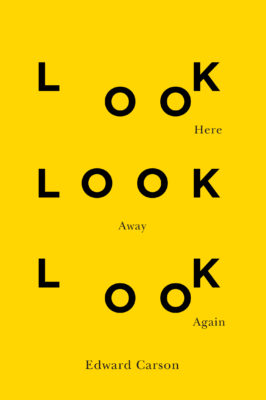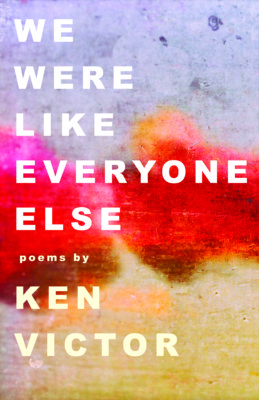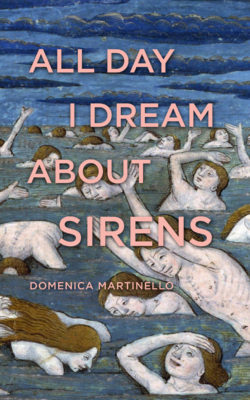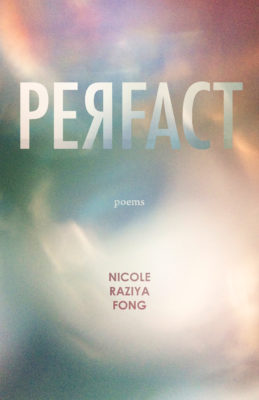The poems in James Arthur’s new collection, The Suicide’s Son, convey a mastery of resonance and form while dealing with topics that feel relevant and real. There is irony and playfulness, as in “Drone,” narrated by the drone itself: “I am a poetry that celebrates power.” This gleeful declaration is immediately undermined by the sinister: “I bomb air. I bomb breath.”
Arthur often establishes an idea, then pulls the rug out from under us to reveal a deeper and darker underside. “Tree-Planting” describes various tree-planters, before settling on one, “a new guy who no one else can stand.” This guy has a mean dog that he may or may not have accidently killed with a baseball bat. “The outcome is unclear,” so the poet offers an alternative ending:
———–Man and dog are happy,
—–each in the company
of a creature he truly loves—so let’s leave them as they are,
—–in the field.
Quiet. No breeze. The red stitching on the softball
—–hanging in the air.

The Suicide’s Son
James Arthur
Signal Editions
$17.95
paper
90pp
9781550655223
I feel a collapse of distinctions
between the real and the unreal,
between what has already
taken place, and what is happening right now. (CS)
***
Edward Carson’s engrossing collection, Look Here Look Away Look Again, also implies “a collapse of distinctions.” Here, the poet erodes the boundaries between words and images, between seeing, thinking, and feeling. As the title suggests, the poet offers a new way of contemplating art, one that is experiential and deeply satisfying.
The collection delves into paintings by Monet, Giacometti, Pollock, Modigliani, and others. The poems are formally innovative with minimal punctuation, and the ample use of spaces between words allows the reader to absorb the intricate thoughts expressed on each line. Carson maintains this approach with remarkable consistency.

Look Here Look Away Look Again
Edward Carson
McGill-Queen's University Press
$17.95
paper
96pp
9780773556263
Carson’s sonnets revel in the images captured by Miró. “Women Encircled by the Flight of a Bird” plays with perspective, geometry, and acceleration so that the women are ultimately seduced “into thinking what they see is a / bird a perception blowing up an inviolable / promise of truth in a celestial entanglement.”
The final sonnet after Miró, “The Passage of the Divine Bird,” vividly connects a brain’s visual processing with emotion to celebrate the infinite possibilities of looking deeply:
——constellations giving new shape to endlessly
evolving narratives seen everywhere and pulling
together differently every time we look again. (CS)
***
Birds also figure in Ken Victor’s debut collection, We Were Like Everyone Else. In this case, the poems shift between small, private moments or insights and larger perspectives on the legacy of history with a formal ingenuity ranging from sonnets and haiku to free verse and prose poems. As with Carson’s collection, fatherhood is a recurring preoccupation – the lingering issues around one’s own father and the immense responsibility of being a father. The past overlaps with the present, as in “A Short History of Disasters,” a list poem describing catastrophes from the historical to the personal, ending with
the mess arising from the over-reach of power,
the knock on the door, the nervous soldiers,
everything we know changing in an instant.

We Were Like Everyone Else
Ken Victor
Cormorant Books
$18.95
paper
72pp
9781770865471
One prose poem, “Cold Warrior,” is a moving account of a friend’s suicide, opening with “An act of courage or escape? The wind won’t say.” The stanzas create a portrait of a Vietnam War veteran and his repudiation of a meaningless world, closing with: “your single irrevocable act will never stop calling out its questions. I think you would’ve wanted it this way.”
Victor’s poetry does not shirk from ugly realities, but rather exposes them with grace and intelligence. In the sequence entitled “Canadian Jew Haiku,” the poet expresses another view of the “collapse of distinctions” so beautifully:
Mornings in Gaza,
evenings in Jerusalem,
birds are borderless. (CS)
***
All Day I Dream About Sirens (and its commercial acronym ADIDAS) divides Domenica Martinello’s thematically cohesive debut collection into, on the one hand, a lyrical modality centred on the female subject, and on the other hand, its literal commodification. Mythological sirens, mermaids, nymphs, and sorceresses proliferate throughout the poems, overlaid with contemporary “female logos” such as the green Starbucks mermaid or the Homeric Circe’s transmogrification into Cersei Lannister in the HBO series Game of Thrones. “If you are the siren, over the last forty years we’ve made some changes to that identity,” writes Martinello in a line that can, of course, be extended to include the last few thousand years. “Mythology is rife with fishy women,” and those women have survived to the present day, either objectified for advertising purposes or empowered as feminist markers of resilience and social transformation. One of the collection’s shortest poems, “Sand,” reads, in its entirety, “it takes millions of us / to make the world soft,” suggesting, against all odds, the hope for a more inclusive, multivalent form of human existence.

All Day I Dream About Sirens
Domenica Martinello
Coach House Books
$19.95
paper
102pp
9781552453827
The line between sea
and seamstress is three
times finer than human
hair.
share affective truth beyond any factual boundary; this is the kind of image that brings the reader to an internal, tender standstill. ADIDAS is also a formally experimental collection, though, often fragmenting syntax into language that mirrors the stereotypical reduction of the female body to its anatomical parts: “lady of the lake – lorelei – a lie a lie – two thighs.” Short clips resemble slogans, but they absorb musicality, wit, and finely tuned intelligence to pulse from poem to poem to an oceanic, frothing pitch. (KdP)
***
Perfact, the evocative title of Nicole Raziya Fong’s tripartite debut collection of poetry, provides a range of entry points into her densely philosophical writing. For me, it immediately suggests a distortion of the word perfect, a reinvigoration of an unattainable ideal, but with the equally slippery determinacy of the factual. In a cover blurb by Erín Moure, the title is read as the Cyrillic invocation of the first-person speaker instead, pointing out that Я can mean I. As a poetic work that often registers as an articulation of new philosophy – also gesturing back to and incorporating post- structuralist thought, and giving the work a flavour of Simone Weil and Antonin Artaud, among many others – no fixed theory is ever posited. While Fong’s writing demands a very cognitively charged reading experience, it simultaneously flows over the reader, both surfacing thought and letting it sink back out of sight again, allowing poetry to reside in “the transit between articulation and rumination.”

Peяfact
Nicole Raziya Fong
Talonbboks
$16.95
paper
112pp
9781772012279
rejecting the autonomy of venture, of sky
i reform into a tilting garden
[…]
in this seeking i am a rose garden
[…]
a rose is torn / beloved / hued
Consciousness resonates through her use of language, while words also fade and course, shapeshifting aesthetically from “a feather” to “a petal” to “a pearl.” Fong’s powerful debut is a text to return to, to linger on, to rest against the palate of the mouth, and to experientially diffuse as a colour palette of verbal potential. (KdP) mRb






0 Comments